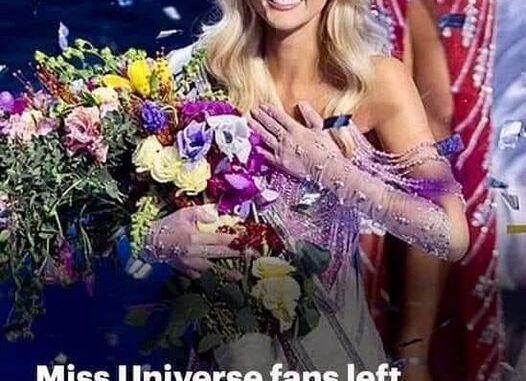
Miss Universe fans were left shocked as a straight, white, biological woman claimed the title in the beauty pageant.
Miss Universe fans were left stunned when a straight, white, biological woman won the prestigious beauty pageant, sparking a wave of reactions and discussions across social media and in the wider public sphere. The victory marked a rare moment of controversy in the history of the pageant, which has increasingly seen a push for diversity and inclusivity in recent years.
The Miss Universe pageant has long been a global platform for showcasing beauty, talent, and personality, with contestants from all over the world vying for the coveted crown. Over the past few years, there has been an increasing emphasis on diversity, with contestants from various ethnic backgrounds, gender identities, and cultural contexts competing for the title. The shift towards greater representation has been welcomed by many, reflecting a broader societal trend towards inclusivity and a more expansive definition of beauty.
However, the crowning of a straight, white, biological woman has caught the attention of critics who feel that the pageant has deviated from its evolving values. For some, the win represents a return to traditional norms, while others feel it highlights the complexities of balancing the celebration of diversity with respect for more traditional forms of beauty. There are those who argue that this win signals the continuation of outdated beauty standards, while others believe it highlights that beauty can still come in many forms, regardless of race, sexuality, or gender.
The fanbase for Miss Universe is global and diverse, and the result sparked intense debates. On one hand, some fans expressed their admiration for the winner’s grace, poise, and accomplishments, applauding her as deserving of the title. They emphasized that beauty pageants, at their core, should celebrate the individual qualities of the contestants, and the winner’s background should not detract from her personal achievements.
On the other hand, there were fans and critics who questioned the decision. Some argued that the pageant should reflect a more inclusive, modern image of beauty, showcasing the diversity of the world’s population. They pointed out that in recent years, Miss Universe had made efforts to highlight women from underrepresented groups, and they believed that the win of a straight, white, biological woman did not fully align with the evolving cultural moment.
Social media was flooded with comments and discussions, with many weighing in on the broader implications of the win. Some took to online platforms to celebrate the result, defending the winner’s right to represent beauty in her own way. Others, however, expressed disappointment, feeling that the pageant missed an opportunity to further embrace the diversity that has become a hallmark of many global competitions.
The controversy also sparked conversations about the future of beauty pageants in general. As the world continues to evolve, the notion of beauty itself has expanded beyond traditional boundaries. People are increasingly challenging conventional standards, questioning what it means to be beautiful and what qualities should define a pageant winner. The Miss Universe contest, along with other similar competitions, may face growing pressure to ensure that they remain relevant in a world that is becoming increasingly diverse and more accepting of various identities.
In the aftermath of the pageant, discussions surrounding the winner’s background and the future direction of beauty pageants continue to make headlines. What remains clear is that the world of beauty competitions is at a crossroads, and the evolving expectations of both fans and participants will likely shape the path forward for years to come. The recent Miss Universe pageant highlighted not only the complexity of beauty standards but also the powerful role these events play in reflecting and challenging societal values.

Leave a Reply